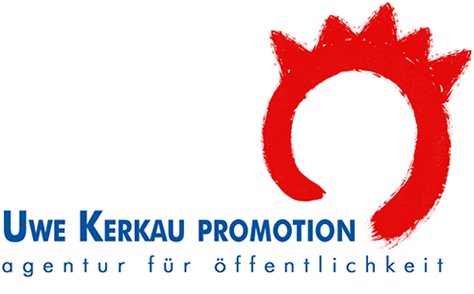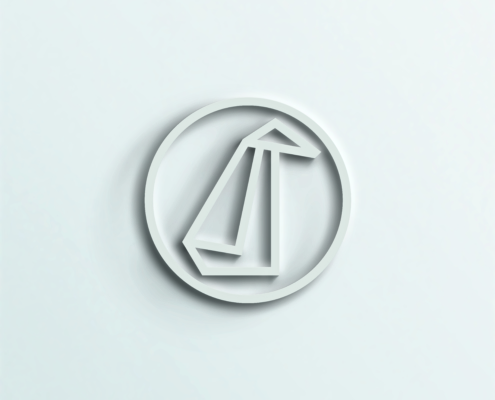GoGo Penguin – s/t
TRACKLIST
- 1_# 2:02 / 2. Atomised 4:23 / 3. Signal in the Noise 6:09
- Open 4:46 / 5. F Maj Pixie 5:49 / 6. Kora 5:33
- Totem 3:54 / 8. Embers 3:00 / 9. To the Nth 4:34
- Don’t Go 3:38
Wenn eine Band sich mitten in der Karriere dazu entscheidet, ein Album unter Bandnamen herauszubringen, bedeutet das normalerweise, dass sie entweder „angekommen“ oder größenwahnsinnig geworden sind. Beides ist bei GoGo Penguin ganz bestimmt nicht der Fall.
Trotzdem ist deren einfach nur „GoGo Penguin“ betiteltes drittes Album ein deutliches Statement. Das Trio aus Manchester, England, bestehend aus Chris Illingworth (Piano), Rob Turner (Schlagzeug) und Nick Blacka (Bass), hat seit 2013 auf Schritt und Tritt Lob und begeisterte Kritiken für seine Inspiration und Originalität erhalten. Die drei Musiker vereinen Jazz, Club Music, klassische und elektronische Einflüsse, waren für den britischen Mercury Prize nominiert (Album des Jahres) und füllen weltweit kleine und große Venues.
„In der Vergangenheit mussten wir im Studio ein Album in drei Tagen einspielen“, sagt Schlagzeuger Rob. „Dieses Mal hatten wir sechs Monate Zeit zum Schreiben und zwei Wochen zum Aufnehmen, so dass jeder viel mehr Zeit hatte, zu jedem Track beizutragen. Es wurde mehr experimentiert, Dinge ausprobiert – und oft auch verworfen. Infolgedessen ist dieses Album ausgefeilter.“
„In der Vergangenheit hatten wir ein ziemlich einfaches Leben. Wir waren jünger, also gab es nicht so viel Drama und es gab nicht so viele wichtige Ereignisse in unserem Leben. Inzwischen ist mehr dazu gekommen, die Realität des Älterwerdens, der Sterblichkeit, und die Verantwortung für nahestehende Menschen. Zur gleichen Zeit wurde Chris Vater. Je länger du lebst, desto komplizierter wird deine Realität. Wir hatten das Gefühl, dass unsere Musik das widerspiegeln soll.”
Nach all den Monaten der “akustischen Alchemie“ im Studio hoch im Norden Englands, sind GoGo Penguin jetzt also bereit, wieder in die Welt zurückzukehren und ihre Musik auf ein neues Level zu heben. Dazu gehören auch geplante Konzerte in großen Hallen wie der legendären Brixton Academy. “Das ist der pure Wahnsinn, kaum zu glauben“, fasst Nick zusammen.
“Wir sind das Trio auf der Festivalbühne, das alle zum Tanzen bringen will“, sagt Chris. „Da sind Leute, die total abdrehen, und dann wieder ganz normale Leute, die mit ihrer Familie da sind und mit ihren Kindern tanzen. Alte Leute, junge Leute und alles dazwischen. Das ist uns das Wichtigste. Welche Musik das ist? Unseretwegen können die Leute es so nennen, wie sie wollen.“
BIOGRAPHY
Rob Turner and Nick Blacka have been playing together consistently for 15 years now – the only hiatus was when Rob joined Chris Illingworth to form an early version of GoGo Penguin, and Nick went off and joined a funk band (he’d also once played with late-’90s trip-hoppers Aim). He almost ended up as GGP’s manager, until their original bassist left, and Nick became his obvious successor on that instrument.
“There’s a reason why it works with the three of us,” reckons Nick, “and that’s because it’s very difficult to get that level of understanding without all those years we’ve had of playing together. Chris has had his classical training, and me and Rob both have a background in jazz, and we’re actually all very different in our characters, but there’s more that connects than disconnects us, and what we each bring to the table is what makes up GoGo Penguin.”
After talking to the three of them, on some levels one might indeed imagine Chris the bookish, perfectionist yet soulful pianist, Rob the wide-eyed rhythm theorist who gamely ties all musical endeavour to the teachings of Greek philosopher Pythagoras, and feet-on-ground earthing influence Nick to be too poles-apart to work together effectively in the same room.
Once they’d discovered their winning formula with v2.0, their progress indeed wasn’t entirely without turbulence, as they quickly had to acclimatize to the (inter)national recognition and touring that came with their Mercury props. Their ensuing Blue Note debut, Man Made Object (2016), was made under extreme pressure (both in terms of time but also self-induced creative rigour), but by the time of A Humdrum Star two years later, they’d found their inner equilibrium, and had a clear vision of what they were all about, which couldn’t be nailed to one genre. Perhaps due to their choice of label, however, there has been a perception that GoGo Penguin are primarily a jazz band fighting to break free of that straitjacket. Blacka sees it differently:
“Because I play the double bass,” he says, “I think I always wanted to have jazz in our music, but as we’ve moved through the albums, it’s been a very gradual thing for me where I’ve now finally come to accept that we really just aren’t a jazz band. This new album is the one where I thought, ‘Fuck it, there’s no point even worrying anymore!’ That has been really liberating and freeing for all of us”.
Playing devil’s advocate, though: Jazz or not, GoGo Penguin still live in much the same space. They compose and improvise collectively, and let’s be frank, they groove like hell.
The seeds of GoGo Penguin were sown in the early months of 2019, when Blacka, Illingworth and Turner convened at their Wellington House studio/rehearsal space in Ancoats, with the kind of breathing space they’d not enjoyed since Nick joined the band in the run-up to v2.0. They not only had time to knock around ideas but also to play musical games, as a kind of motivational bonding exercise.
There had been plans to tour Australia in early summer, but May-June was ultimately put aside for the birth of Chris’s son, Luca. So, work resumed in July-September, in the midweeks between weekend festival gigs. Thereafter came a month and a half of intensive writing and shaping of material in Ancoats, followed by two weeks’ recording at The Chair Works, a residential studio in Castleford, West Yorkshire.
What they came up with, they all agree, reflected those inevitable convolutions in their increasingly mature lives. “Most of the tracks are an amalgamation,” says Rob. “Before, we would evolve an idea over quite a long track, but these ones are often three or four tunes rolled into one. We would sometimes take just half a drumbeat from one entire track, like that was the thing that really characterized it, and make that the basis for a section of a bigger, more ambitious piece. One, ‘To The Nth’, is like a hybrid car – we took half of one tune and half of another and welded them together. So the songs aren’t just ‘about’ one thing or one emotion like they used to be – just like our lives are more complicated.”
Says Chris, “It means tracks don’t have conventional patterns, like verse-chorus-bridge. It’s something we started on ‘Strid’ [on A Humdrum Star], flowing ideas together with little bits of transition to glue them together into a narrative – or else just ramming them together, because the contrast is the interesting bit.”
Unusually for them, these intricate compositions were all pretty much worked out before they went into the studio in Castleford, and conceived as a self-contained album – the ten tracks that make up GoGo Penguin.
The trio are keen to flag up the help they’ve had in the album’s genesis from their live soundman and album co-producer, Joe Reiser, and co-producer Brendan Williams. “I wouldn’t go so far as to say that they have got an input into the writing,” Chris clarifies, “but they had an input in encouraging us to think in different ways, which then made us write differently.” He points towards a repetition of a piano phrase in the second half of ‘Open’, which was suggested by Brendan, to heighten the track’s dynamic, while Rob raves about how their in-house wizard helped him replicate its Autechre-esque stuttering tech-beat using “soft sticks on a microphone”.
A big part of GoGo Penguin’s impact derives from the way they employ computer technology to compose with, then find ways to record (and perform) the results on acoustic instruments, with help from a surprisingly limited arsenal of effects pedals and delays. Rob confesses, “I spend way more time on my laptop than I do on my drums. The ratio is probably about 90% to 10%.”
Turner obsessively works on the Ableton production software favoured by many electronic producers. According to Nick, the way the sublimely uplifting piano runs of ‘F Maj Pixie’ suddenly decelerate at around 4:30 minutes was partly down to that process: “Chris had a cool idea for a track, which Rob then experimented with in Ableton,” he explains, “he was able to warp and stretch the track down which sounded great.’ So we then learnt how to play what came out of the software, basically acoustically, but enhanced with a few effects. Using software allows us to explore ideas that might otherwise be off limits, but we always strive to play everything as organically as we can, on our instruments.”
Similarly, the opening passage of ‘Kora’ came about with Rob writing a drumbeat, then using his computer to switch the sound of the drumbeat to piano notes “like, what would this drum beat sound like on a piano?”, he says, laughing. “Obviously, it sounded dreadful initially, just a piano playing random notes, but then I switched it to a Japanese mode, and it all came together”.
Also on that track, he used a gizmo called a Polyend Perc, which, he says, “has a stick that pokes out and it’s attached to a solenoid, so you can hit a pad and the stick will hit whatever you attach it to. Using them, you can layer sounds like you would with a drum machine, but it’s almost like having a little robotic friend that plays whatever you play.”
The searching methodology carried over into Chris’s piano parts on ‘Open’: to spice up the end sequence, Illingworth uses a delay pedal which, in his words, “triggers what I’ve just played to play backwards. I was improvising lines sometimes, then I’d improvise in response to what I heard being played back at me in reverse, so the piano weaves around, like waves breaking in different directions”.
Another standout track ‘Atomised’, a firm favourite of the band’s, has them gliding over Rob’s powerful UK garage beat – again, not one for the genre purists – and that combination of habitual rule-breaking and propulsive groove makes for another hands-in-the-air classic in their repertoire”.
If GoGo Penguin throughout sounds like The Bomb, it’s down to the inexhaustible energy its creators put into making it that way. Towards the end of the closing ‘Don’t Go’, there’s another extraordinary technique at work, as Brendan brought in some binaural microphone heads (Lou Reed was a keen advocate in the ’70s), to give its elegiac conclusion a rare sense of intimacy and presence.
Reveals Nick, “We decided to keep Chris playing the piano loop at the end, and we actually grabbed the head microphone and slowly walked away from the piano, so it gets more distant, like a fade. Then I was like, ‘Why don’t we just walk out of the door and close it?’ So that’s how the album ends: the idea was to remind people that even though they’ve been lost in this emotive otherworldly sound, it was human beings that were making it – people in a room together, happening in real time.”
Radio-Kontakte
Media Promotion (Promotion Süd, West & Nord)
Rosita Falke
info@rosita-falke.de, Tel: 040 – 413 545 05
Musicforce
Anja Sziedat (Promotion Berlin / Ost)
anja.musicforce@gmail.com, Tel: 030 – 419 59 615, Mobil: 0177 – 611 5675
Blue Note Records / Universal Music
CD 0602508789144 / 2-LP 0602508789151 / limited transparent 2-LP 0602508789182
VÖ: 12.06. 2020
TOUR
28.09.20 Berlin Festsaal Kreuzberg
29.09.20 Hamburg Fabrik
04.10.20 Mainz Frankfurter Hof

